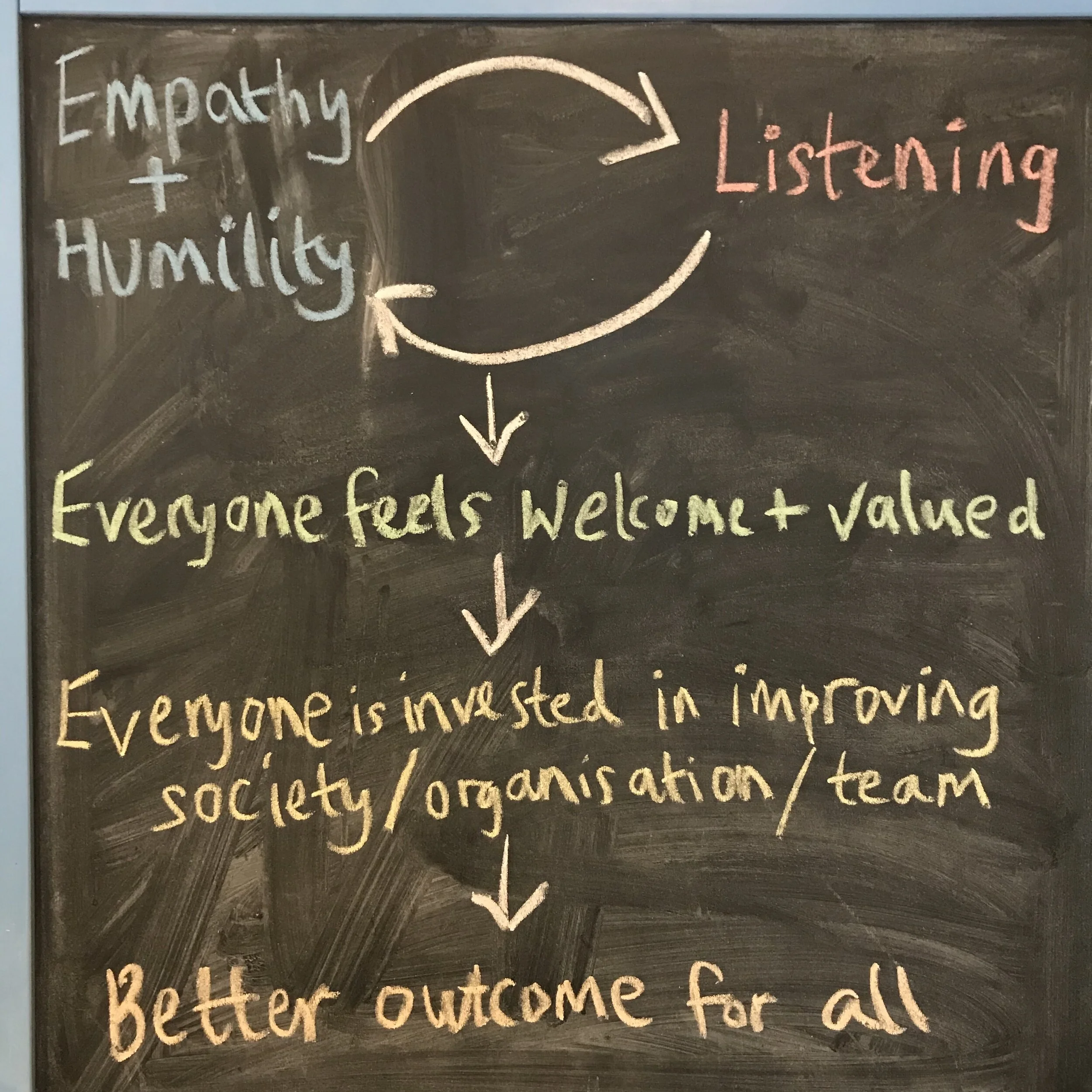The future of leadership: what we need most is empathy and humility
“If we’ve learnt one thing from the Coronavirus experience, it’s that a certain style of government (and leadership) - the style that has dominated the last few years - isn’t going to be of any use to us at all in the 21st Century.” (Brian Eno)
I’ve been reflecting a lot on leadership - political and business - during this pandemic. Brian Eno’s Rethink Essay on the future of leadership (on BBC Radio) compares the ‘macho, media-savvy, authoritarian’ leadership style that the countries who have suffered worst from Covid share, with the cooperative style demonstrated by (female) leaders in Germany, New Zealand and Taiwan, countries which have had much better results.
I believe the key qualities needed for cooperative leadership are empathy and humility. The ability to genuinely care about what others feel and think (empathy) and to recognise our own limitations and know we need the expertise of others (humility). To not feel threatened by those who may know more than us, or to feel the need to feign expertise, as macho leaders do. Some (not many) leaders are naturally empathetic and humble. I’m fairly confident Jacinda Ardern is one of these leaders.
But it is my strong belief that even those leaders who don’t have these natural strengths, can develop in these qualities. How? Through practising listening. The more we genuinely listen, the more we start to care and realise how much others can teach us. We start to see our prejudices and realise the impact they have. And we realise the gaps in our own experience and knowledge. When we really listen, we gradually but inevitably become more empathetic and humble.
When I feel myself starting to judge a party in a mediation, I know the way back out of this trap is to listen curiously. The more open questions I ask, the more I start to learn about the person’s motivations. This re-humanises them and gives me a way back to non-judgemental empathy.
But listening doesn’t just change us; it changes our workplaces and communities - they become inclusive, engaged, cooperative. And when everyone is included, they feel invested in improving the situation. This produces better solutions. To the pandemic, to systemic discrimination, to the challenges in our workplaces.
“We have to make a society that works in the long-term, by valuing all its different intelligences. By engaging everybody rather than excluding most. It’s a future built on cooperation and inclusion, not division.” (Brian Eno)
Would you like to build a truly collaborative, engaged, inclusive workplace? I offer coaching, mentoring and workshops that transform leaders and their teams. Book a free 30 minute taster / consultation session - email beccie@couragelab.co
“I used to find myself charging in when things had got out of control and try to fix everything myself. This coaching has transformed how I see leadership. It has given me a conversation model to operate more collaboratively when things get tense. Upskilling, uplifting and empowering.”

